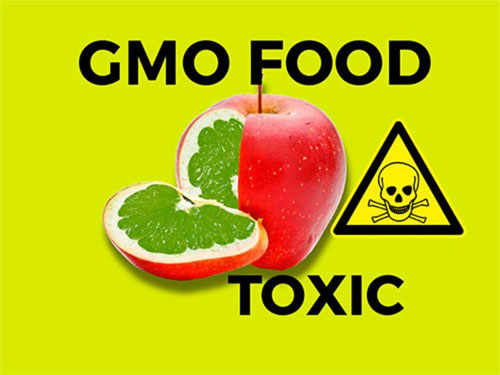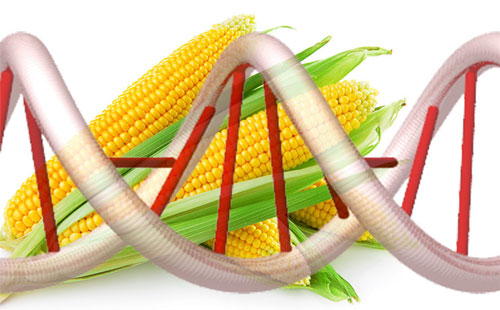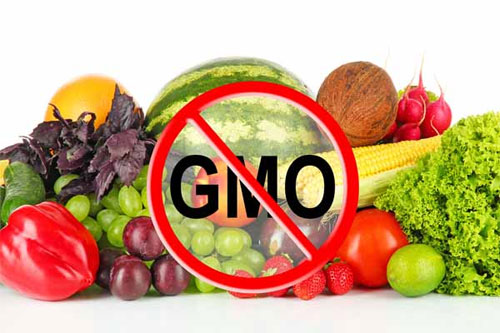Hundreds of Scientists Tell The World That The GMO & Cancer Link Is Real
Anytime a peer-reviewed publication reveals something startling that could literally shut down an entire industry, it seems to be retracted. This is a big problem, and perhaps the biggest when it comes to medical science, with multiple doctors, professors and scientists coming forward in abundance to stress the fact that more than half of all the published research out there could be false. This is why we see so much independent peer reviewed research completely contradict that which is put out by government health authorities.

“The medical profession is being bought by the pharmaceutical industry, not only in terms of the practice of medicine, but also in terms of teaching and research. The academic institutions of this country are allowing themselves to be the paid agents of the pharmaceutical industry. I think it’s disgraceful.” – Arnold Seymour Relman (1923-2014), Harvard professor of medicine and former Editor-in-Chief of The New England Medical Journal.
“Peer Reviewed:” Science Losing Credibility As Large Amounts Of Research Shown To Be False is an article that provides more examples when it comes to the truth about peer-reviewed research. That doesn’t mean it’s not legit, obviously a lot of it is. It’s no different with food science. Big food corporations have been putting out information that completely contradict a lot of other science that’s been published.
Following is a great quote from the CDC Spider (CDC Scientists Preserving Integrity, Diligence and Ethics in Research). More than a dozen scientists came together a some years ago emphasizing the manipulation in the industry, although you probably never heard about it. It’s a problem in all areas of science. “We are a group of scientists at CDC that are very concerned about the current state of ethics at our agency. It appears that our mission is being influenced and shaped by outside parties and rogue interests. It seems that our mission and Congressional intent for our agency is being circumvented by some of our leaders. What concerns us most, is that it is becoming the norm and not the rare exception. Some senior management officials at CDC are clearly aware and even condone these behaviours. Others see it and turn the other way. Some staff are intimidated and pressed to do things they know are not right. We have witnesses across the agency that witness this unacceptable behaviour. It occurs at all levels and in all of our respective units.”
There are loads of examples like the approval of high fructose corn syrup (sugar), processed meats, and packaging that is full of hormone disrupting chemicals. Artificial sweeteners being another. These, and more, are linked to a variety of diseases and surrounded in controversy for the simple reason that the science speaks for itself, and the science used by the big food corporations and their close relationship with government is precisely why they are so commonly used. We’ve been made to think that these things are ok, when in reality, a large portion of the academic, health and science community continue to do their best to emphasize that they’re not.
It is, however, proving to be more difficult in learning of this information as big corporations and their close relationship with government and mainstream media makes sure we don’t come across this type of information. In fact, when questioning certain things, they make you feel like you are stupid to do so. We never hear of the narratives the corporate world does not want us to know, we have to dig for it, and that’s because they have tremendous amounts of power and influence to sway the public perception when it comes to certain developments, like Genetically Modified Organisms (GMOs).
One thing that makes this even more evident is the relationships that big corporations, like Monsanto, have with the US government.
GMOs have come under scrutiny, but no matter who creates awareness of this and provides ample evidence of it, there is always a harsh reaction assuming that their questions and concerns are illegitimate. It’s similar to vaccine safety, and all of the science that’s emerged over the years showing cause for concern, the mainstream still makes those who question vaccine safety feel inferior and out of place for even asking questions.
It’s not right, and the day science stops asking questions is the day we’ve drifted far from real science.
There are countless examples of concerns raised with genetically modified organisms, and why they should not be deemed completely safe for human consumption. The common narrative is that the overall scientific consensus/majority agree that GMOs are safe, but this simply isn’t true. There are hundreds of scientists sharing their concerns, and it just seems as though all we see are GMO safety campaigns and efforts constantly sharing the idea and overall consensus that they are safe, but that doesn’t seem to be true.
If they were safe, there wouldn’t be so many concerns. Let’s take a look at one study that caused a lot of controversy, the Séralini study.
The Séralini Study
In November 2012, the Journal of Food and Chemical Toxicology published a paper titled Long Term Toxicity of Roundup Herbicide and a Roundup-Tolerant genetically modified maize by Gilles-Eric Séralini and his team of researchers at France’s Caen University. It was a very significant study that made a lot of noise worldwide, the first of its kind under controlled conditions that examined the possible effects of a GMO maize diet treated with Monsanto’s Roundup herbicide.

There are no long term studies examining GMOs, Séralini’s study is the first and only of its kind.
In the study, 100 female and 100 male rats were used. In both sets, some rats were fed NK603, some the GM maize sprayed with Roundup, and the third group was given drinking water with the lowest permissible limit of Roundup. A fourth, control group was fed a standard diet of the closest variety of non-GM maize.
According to the peer-reviewed paper published in Food and Chemical Toxicology, a journal from the reputed Elsevier stable, rats that fed on NK603 or given water containing Roundup died much earlier than the rats in the control group and developed hormonal and sex-related effects. Females developed significant mammary tumours, pituitary and kidney problems, while males died mostly from severe kidney failure. Up to 50 per cent of the male rats and 70 per cent of females died prematurely, compared with only 30 per cent and 20 per cent in the control group.
This would, and should, basically mark the end of GMOs, along with all of the other studies that have raised other concerns and have seen strong correlations between GMOs and multiple diseases.
There is great news to report however, as this major GMO study has now been republished following its controversial retraction (under strong commercial pressure), with even more up to date information and a response to previous criticisms.
The study was then re-published by Environmental Sciences Europe.
After the study was retracted, there were more than a hundred notable scientists who came forward to oppose the retraction, calling it an industry retraction. We’ll touch more on that below.
Again, as illustrated above, manipulation of science isn’t new. Just take a look at the recent resignation of the CDC director, as well as the 16 scientists from the CDC who came forward saying that the corporate and political influence of science has gotten out of hand.
It’s all there for us to see, and when discussing science, fraud is rarely brought up and needs to be factored into the equation as one of multiple reasons why GMOs, and other substances, are highly questionable.
Another concerning fact about this study is that, if we look at urine samples, most of us are urinating out Glyphosate. We are eating these GMOs, combined with numerous numbers of pesticides within our blood stream.
There are countless amounts of harmful substances that can lead to cancer, this could be one of many factors in that equation and to help explain why cancer rates keep rising.
Hundreds of Notable Scientists Came Forward To Oppose the Retraction
Despite the fact that the news of the retraction and slandering of the study hit almost every single mainstream media news outlet, shaping the mass perception of it, a number of scientists, who are in the majority, have supported Séralini’s work.
Professor Séralini was also honoured with the 2015 Whistleblower Award by the Federation of German Scientists and the German Section: “Prof Séralini received the award in recognition of his research demonstrating the toxic effects of Roundup herbicide on rats when administered at a low environmentally relevant dose over a long-term period. After the research was published, Prof Séralini was attacked in what the VDW and IALANA call ‘a vehement campaign by ‘interested circles’ from the chemical industry’ as well as from the UK Science Media Centre. This smear campaign led to the retraction of his team’s paper by the first journal that published it. But Prof Séralini and his team fought back, countering the scientific arguments raised against their research and republishing their paper in another journal.”
Again, many international scientists and experts have expressed support for Séralini’s study and for open scientific debate based on the peer-reviewed publication system, but you won’t see a debate, because there is no sound argument from the opposing side.
A statement opposing the attacks, “Science et conscience”, signed by 140 French scientists, was published in the newspaper Le Monde.
“Such attacks on scientists who highlight risks of GM plants are normal. It’s always the same industry-linked GM proponents who immediately try to defame the critical studies and their authors in a concerted campaign. This is about money.” – Dr Angelika Hilbeck, a biologist at the ETH Zurich (Swiss Federal Institute of Technology). She also said in a media interview that she takes Séralini’s findings “seriously”. Hilbeck was subjected to attacks similar to those leveled at Séralini after her team published research showing that GM maize harmed beneficial insects.

Hundreds of scientists and academics from around the world signed an open letter that supports Séralini’s research and sheds light on the way in which the GM approval process is rigged, which is backed up by the suppression of independent scientists working in the public interest. The letter states that an “honest, rational or scientific debate” is being made impossible.
Below are links to individual letters from 160 scientists, which were sent to the journal that published the original paper. These letters have been made public by Séralini’s research institute CRIIGEN:
Letters of support (1)
Letters of support (2)
Monsanto’s Secret Documents Show Massive Attack on Séralini’s Study
When the original study was retracted, it was done so by the journal’s editor, A. Wallace Hayes. It was also coincidentally done after the appointment of a former Monsanto scientist, Richard E. Goodman, to the editorial board. Again the study was republished with all the criticisms addressed, but this only happened after the studies reputation was damaged due to the corporation, Monsanto.
Fast forward a few years later and secret internal Monsanto documents were released in 2017 by legal firms in the United States. In these documents, it was quite clear how Monsanto pressured Wallace Hayes, Editor of Food and Chemical Toxicology, to retract the study.
You can access those documents here.
10 Things You Need To Know About the Séralini Study
1. Most criticisms of Séralini’s study wrongly assume it was a badly designed cancer study. It wasn’t. It was a chronic toxicity study – and a well-designed and well-conducted one.
2. Séralini’s study is the only long-term study on the commercialized GM maize NK603 and the pesticide (Roundup) it is designed to be grown with.
3. Séralini used the same strain of rat (Sprague-Dawley, SD) that Monsanto used in its 90-day studies on GM foods and its long-term studies on glyphosate, the chemical ingredient of Roundup, conducted for regulatory approval.
4. The SD rat is about as prone to tumours as humans are. As with humans, the SD rat’s tendency of cancer increases with age.
5. Compared with industry tests on GM foods, Séralini’s study analyzed the same number of rats but over a longer period (two years instead of 90 days), measured more effects more often, and was uniquely able to distinguish the effects of the GM food from the pesticide it is grown with.
6. If we argue that Séralini’s study does not prove that the GM food tested is dangerous, then we must also accept that industry studies on GM foods cannot prove they are safe.
7. Séralini’s study showed that 90-day tests commonly done on GM foods are not long enough to see long-term effects like cancer, organ damage, and premature death. The first tumours only appeared 4-7 months into the study.
8. Séralini’s study showed that industry and regulators are wrong to dismiss toxic effects seen in 90-day studies on GM foods as “not biologically meaningful”. Signs of toxicity found in Monsanto’s 90-day studies were found to develop into organ damage, cancer, and premature death in Séralini’s two-year study.
9. Long-term tests on GM foods are not required by regulators anywhere in the world.
10. GM foods have been found to have toxic effects on laboratory and farm animals in a number of studies.
Concluding Comments & Book Recommendations
Ask yourself: why are dozens upon dozens of countries across the world completely banning the import or growth of genetically modified foods in their countries? Several of them have already cited numerous environmental and human health concerns, and others have simply stated that they’d like to do more research.
Again, the corporate and political influence is huge. What we have here is fraud, not science, and clearly, the “majority,” as mainstream media would have you believe, and have most academics believe, are not “pro” GMO.
Another great example regarding the politicization of this issue comes from WikiLeaks documents, showing that the United States was threatening other countries to accept them. Read more about it in the book The WikiLeaks Files: The World According To U.S. Empire.
In 1996, Steven M. Druker did something very few Americans were doing then — learn the facts about the massive venture to restructure the genetic core of the world’s food supply. The problem of unawareness still exists today, but it’s getting much better thanks to activists like Druker.

Druker, being a public interest attorney and the Executive Director of the Alliance For Bio-Integrity, initiated a lawsuit in 1998 that forced the U.S. Food and Drug Administration (FDA) to divulge its files on genetically engineered foods.
He’s recently published a book on the lawsuit (2015). In the book, Druker provides details of his experience, and he’s also released the documents on his website showing the significant hazards of genetically engineering foods and the flaws that the FDA made in its policy.
It’s called Altered Genes, Twisted Truth: How the Venture to Genetically Engineer Our Food Has Subverted Science, Corrupted Government, and Systematically Deceived the Public.
The book has some very impressive reviews. For example, David Schubert, Ph.D., molecular biologist and Head of Cellular Neurobiology at the Salk Institute for Biological Studies said that this “incisive and insightful book is truly outstanding. Not only is it well-reasoned and scientifically solid, it’s a pleasure to read – and a must-read.”
Stephen Naylor, Ph.D., CEO and Chariman of Mai Health Inc., an individual who spent 10 years as a Professor of Biochemistry & Molecular Biology and Pharmacology and the Mayo Clinic stated that Druker’s “meticulously documented, well crafted, and spell binding narrative should serve as a clarion call to all of us.”
yogaesoteric
July 22, 2019
